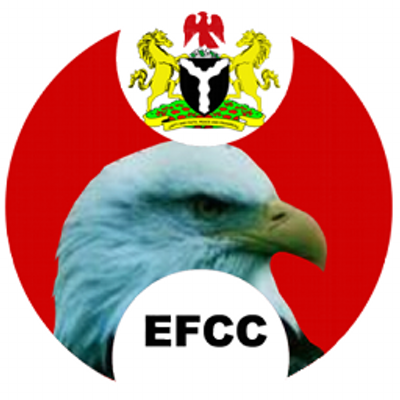Fidelity Bank, under the leadership of Nneka Onyeali-Ikpe has been moving close to its set benchmark to be recognised as a tier-one bank across the globe. Initially, when Ikpe assumed office in 2021 as the CEO of the bank, it sounded like a tall order, given the dynamic operating landscape in the sector but nevertheless, the bank is proving it is achievable.
The bank has recorded improved efficiency and customer experience around its network, while customer transactions have grown considerably as it optimizes its balance sheet and builds up a large stock of stable low-cost deposits.
Fidelity Bank’s strategic plans are driven by seven core pillars. They are strong indicators to emerge as a tier-one bank. The seven focus areas critical to achieving this objective include: Accelerated Growth, Innovation Drive, Brand Refresh, Performance Discipline, Digital Transformation, Service Excellence and Workforce Transformation.
Interestingly, the bank is on-track to meeting its tier-one ambition as reflected in its financial results that have indicated significant growth on key reporting lines.
Just recently, the Nigerian Fidelity Bank sent $421 million to settle a Eurobond due Monday, as the West African nation grapples with a growing scarcity of foreign exchange.
According to a statement by the bank, the sum was transferred on Oct. 13 for the settlement of the five-year, dollar-denominated bond issued in 2017 with a coupon of 10.75%, according to a document seen by Bloomberg and confirmed by the lender’s head of investor relations, Samuel Obioha. The remitted amount includes the due coupon payments for six months, Obioha said.
The repayment comes as lenders in Africa’s largest economy struggle with the effect of a strengthening US currency, restricting dollar transactions on their local-currency debit cards.
The central bank had to step in to provide dollars last month after international airlines struggled to get greenbacks from lenders to repatriate their profits, raising the prospect of them canceling flights to Nigeria.
Fidelity has a $400 million, five-year Eurobond maturing in October 2026, the yield on which is currently about 15%, compared to 7.875% when issued.
Fidelity Bank Plc, as part of its CSR, has hosted workshops to train businesses on critical requirements to export to the United States of America (USA).
One of such trainings, which was held in Aba, Abia State, was put together in collaboration with Export & Sell Limited -a trade enabling platform that facilitates the listing of Nigerian businesses on Amazon as well as access to other US off-take markets.
Also, Fidelity Bank recently announced its acquisition of 100 percent equity stake in Union Bank UK (UBUK) Plc, which is in line with its short to medium term aspirations and international expansion drive.
The transaction according to Nneka Onyeali-Ikpe, managing director/CEO, Fidelity Bank, aligns with the bank’s strategic plan of expanding its service touchpoints beyond the Nigerian market and providing straight-through services that meet and exceed the needs of Fidelity Bank’s growing clients.
Reports have it that prior to the acquisition announcement, the bank has maintained a steady growth, growing from a tier two bank to now a tier one lender with capital adequacy ratio of 19.8 percent in the first half of 2022.
Stanley Amuchie, executive director, chief operations and information officer of the bank, during a media chat in Lagos, said the bank ranks among the top six banks in Nigeria across different indices including total assets, deposits and loans.
Evidently, in its half year (H1 2022) financial results, the bank grew total deposits by 13.1 percent Year-To-Date (YTD) to N2,290.1bn from N2,024.8bn in 2021FY, driven by double-digit growth in low-cost deposits. Low-cost deposits increased by 26.1 percent YTD to N1,902.4bn and now represents 83.1 percent of total deposits from 74.5 percent in 2021FY, which explains the drop in funding cost.
The bank’s H1 2022 performance has delighted stakeholders, which shows the bank has grown strongly across key performance indices. The bank’s gross earnings increased by 37.9 percent YoY to N154.8bn on account of 52.9 percent growth in interest income to N136.2bn from N89.1bn in H1 2021. The increase in Interest Income was driven by improved yield on earnings assets and 14.9 percent YTD expansion in earnings base to N2,546.5bn.
A major feat is the acquisition of Union Bank UK. This offers a lot of benefits to the bank as UBUK offers a compelling investment case for Fidelity Bank.
Union Bank UK is a UK incorporated and regulated commercial Bank – wholly owned operating subsidiary of Union Bank Nigeria.
It commenced operation from the heart of the city of London in 1983.
Reports say, following authorisation from the UK Financial Services Authority (FSA) and approval from Prudential Regulation Authority (PRA) and Financial Conduct Authority (FCA) in 2013,
UBUK became independently incorporated as a UK deposit-taking bank.
Its competitive range of banking services include personal banking, trade finance, treasury management, structured trade, and commodity finance which it ¹offers to individual and corporate clients.
Its licensed to accept current, savings, time deposits from retail and corporate
customers (unlike other Nigerian Banks in the UK).
It also enjoys UK deposit guarantee which provides cover of up to GBP 85,000 per depositor.
The Union Bank UK is the 167th largest bank in the UK in terms of total assets.
The bank offers a robust range of banking services to customers doing business from and into Africa, including trade finance, personal banking, business banking, treasury services and commercial lending.
In terms of benefits of the acquisition, he noted the significant captive business opportunity for UBUK from Fidelity Bank existing foreign currency transactions
in Nigeria.
It gives room for revenue and cost optimization through cross-selling and shared services.
Other beneficial areas centers around economies of scale, integrated customer
experience, and Fidelity bank aspirations.
“Complementary business operations will enable strong value creation for shareholders and clear benefits for customers, staff, and other key stakeholders.
UBUK will service other subsidiaries of Fidelity Bank under the proposed Holdco structure,” Amuchie said.
These are strong indices pointing to Fidelity’s unstoppable growth as a tier-one bank.
Olamide Adeniji is a member of the editorial team of TheScript Newspaper




